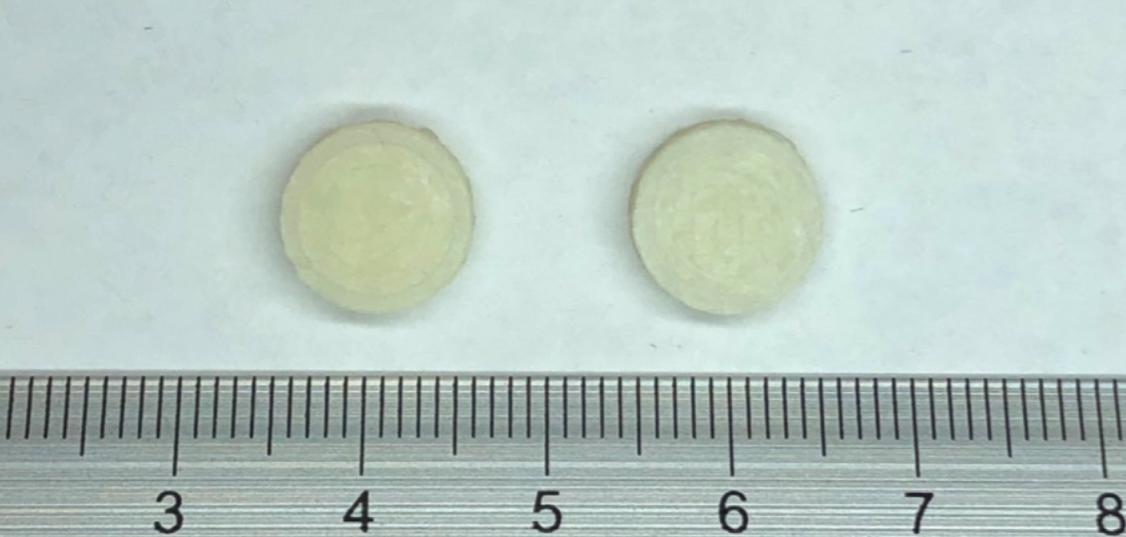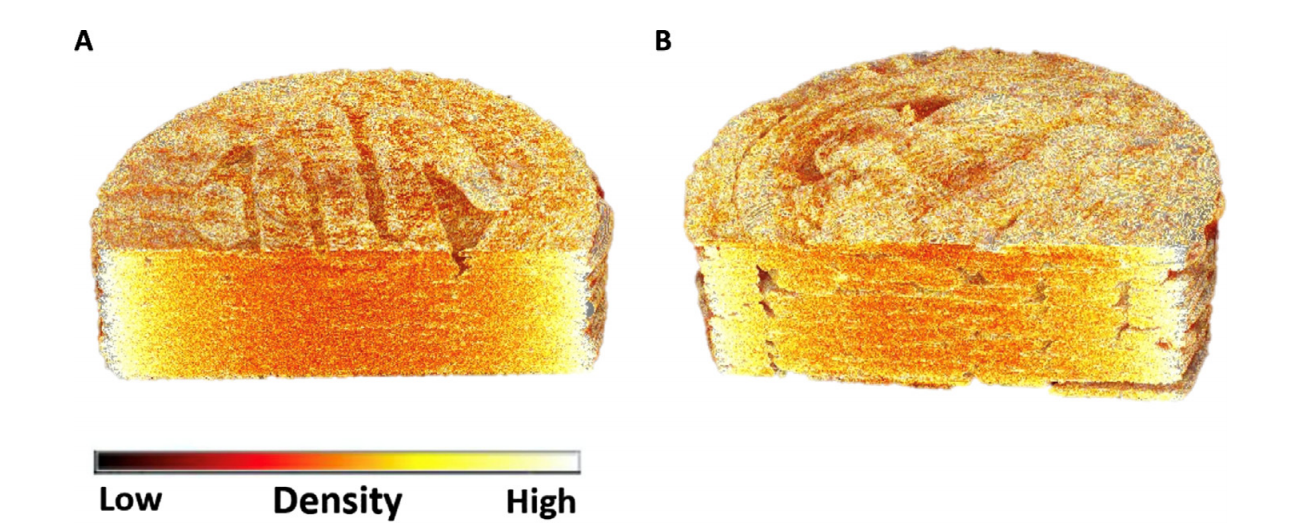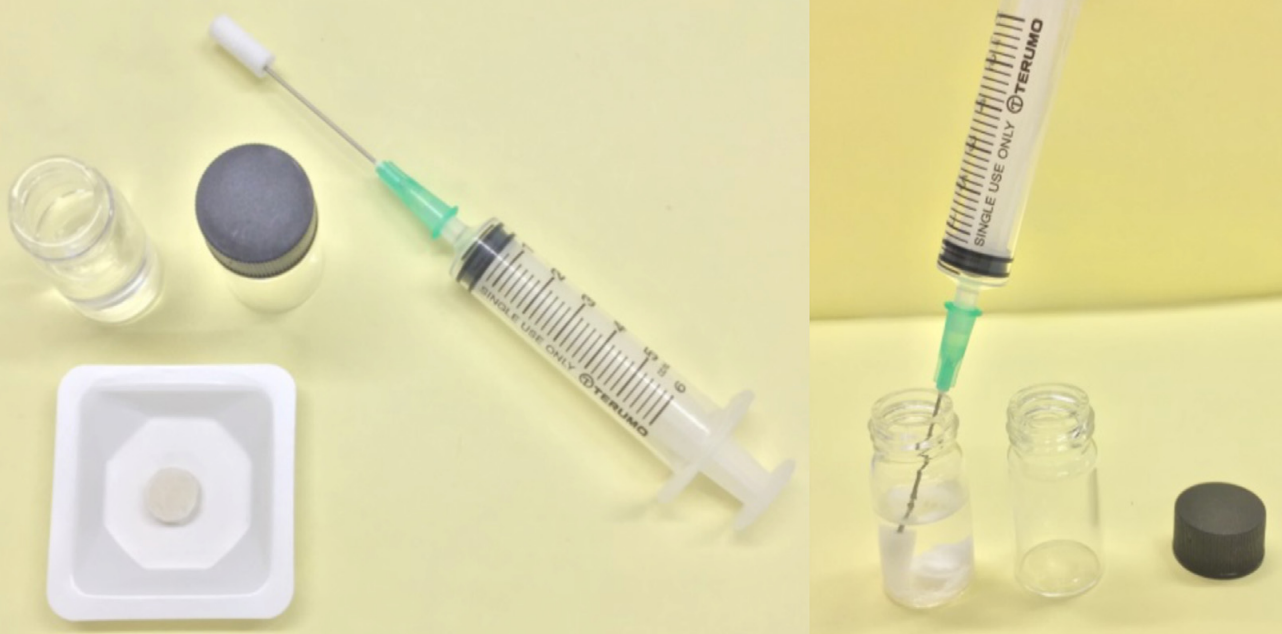A team of researchers from University College London (UCL) have 3D printed opioid tablets (tramadol) with alcohol-resistant and abuse-deterrent properties. The work aims to combat the growing global health crisis of opioid abuse caused by the over-prescription of high-strength painkillers by providing a safer method of drug administration.

The opioid epidemic
In the last ten years or so, opioid prescriptions have increased exponentially, cementing opioid abuse as an established global health crisis. According to WHO, drug addiction and misuse now affects over 27 million people worldwide, and that number is growing by the day. Opioids in particular are very easy to abuse due to their extremely effective painkilling action. One of the most common opioid medicines is tramadol, which is prescribed for moderate to severe pain in the case of major surgeries and accidents. Long-term use of tramadol often results in dependency, which can lead to respiratory depression, coma, or even death.
Alcohol-resistant and abuse-deterrent
To produce the modified-release tramadol tablets, the team first mixed the active ingredient tramadol hydrochloride with D-Mannitol (plasticizer) and magnesium stearate (lubricant). Each batch consisted of a 10g blend of the drug and its additives, and a specialist M3DIMAKER 3D printer was used to 3D print 16x 10mm diameter tablets via direct powder extrusion – a form of 3D printing very similar to FDM.

Since drug abuse often coincides with alcohol use, and as mixing alcohol with opioids can be fatal, the team thought it was important to produce tablets with effects that would not be emphasized by the presence of alcohol. To assess the ‘alcohol resistance’ of the tablets, the researchers tested the dissolution of the formulated compound in 40% ethanol and in water. The dissolution rates in the alcoholic and non-alcoholic solvents were similar and the researchers even found the tablets to have slightly slower release rates in the alcohol. This meant that if the tablets were to mix with alcohol in the stomach of a user, the chances of a fast-release induced overdose (aka alcohol-induced dose-dumping) would be reduced.
According to the study, the most common administration methods in abuse cases are through injection and snorting. To test the ‘syringeability’ of the tablets, a single tablet was boiled in water for five minutes and drawn up a 5 mL syringe. The researchers then analyzed the amount of active drug the syringe actually managed to pull in. The results showed that only about 20% of the active drug was present in the syringe, making it fairly injection resistant.

To test the ease of nasal abuse, the team grinded up the tablets in a coffee grinder for two minutes and determined the particle size distribution of the product. Particles smaller than 500 microns were considered small enough to be snorted and absorbed. Although around 92% of the particles were small enough to affect the user, the researchers concluded that the inherent gelling properties of tramadol hydrochloride would cause enough clogging and discomfort in a user’s nose that they would be discouraged from further nasal use.
Further details of the study can be found in the paper titled ‘3D printed opioid medicines with alcohol-resistant and abuse-deterrent properties’. It is co-authored by Jun Jie Ong, Atheer Awad, Annalisa Martorana, Simon Gaisford, Edmont Stoyanov, Abdul Basit, and Alvaro Goyanes.
Several UCL researchers who worked on this paper have previously 3D printed personalized tablets for children with a rare metabolic disorder – maple syrup urine disease (MSUD). According to Patient UK, MSUD affects 1 in every 185,000 live births, and the main form of treatment is a strict diet and amino acid supplements. Elsewhere, Merck has previously collaborated with AMCM to produce 3D printed tablets for clinical trials and commercial mass production.
The nominations for the 2020 3D Printing Industry Awards are now open. Who do you think should make the shortlists for this year’s show? Have your say now.
Subscribe to the 3D Printing Industry newsletter for the latest news in additive manufacturing. You can also stay connected by following us on Twitter and liking us on Facebook.
Looking for a career in additive manufacturing? Visit 3D Printing Jobs for a selection of roles in the industry.
Featured image shows density maps of the 3D printed tablets. Image via UCL.



